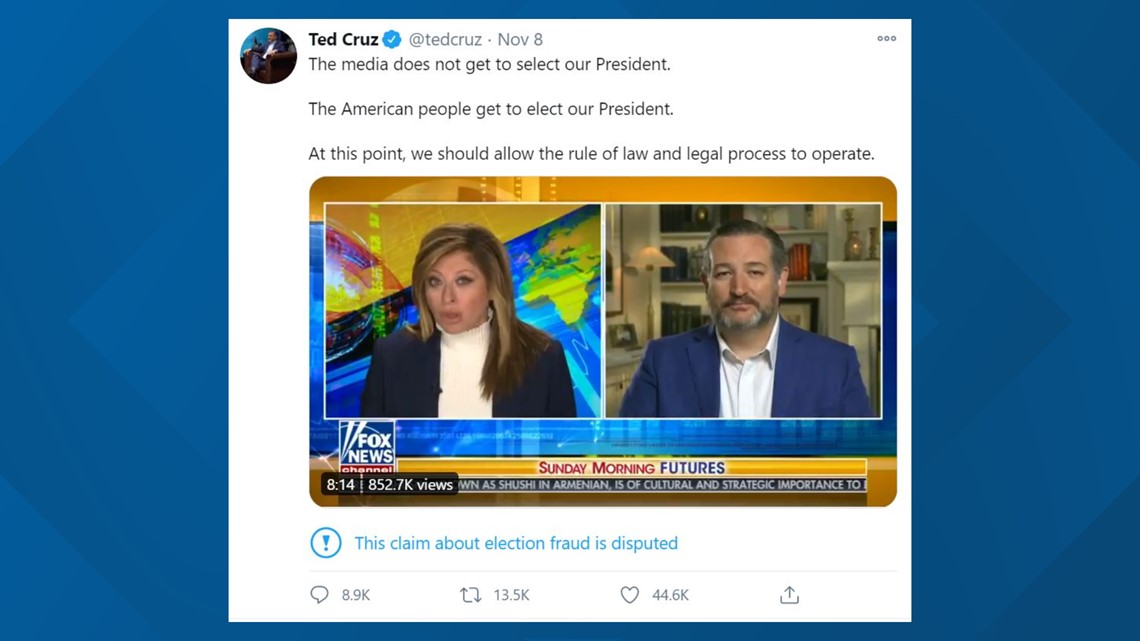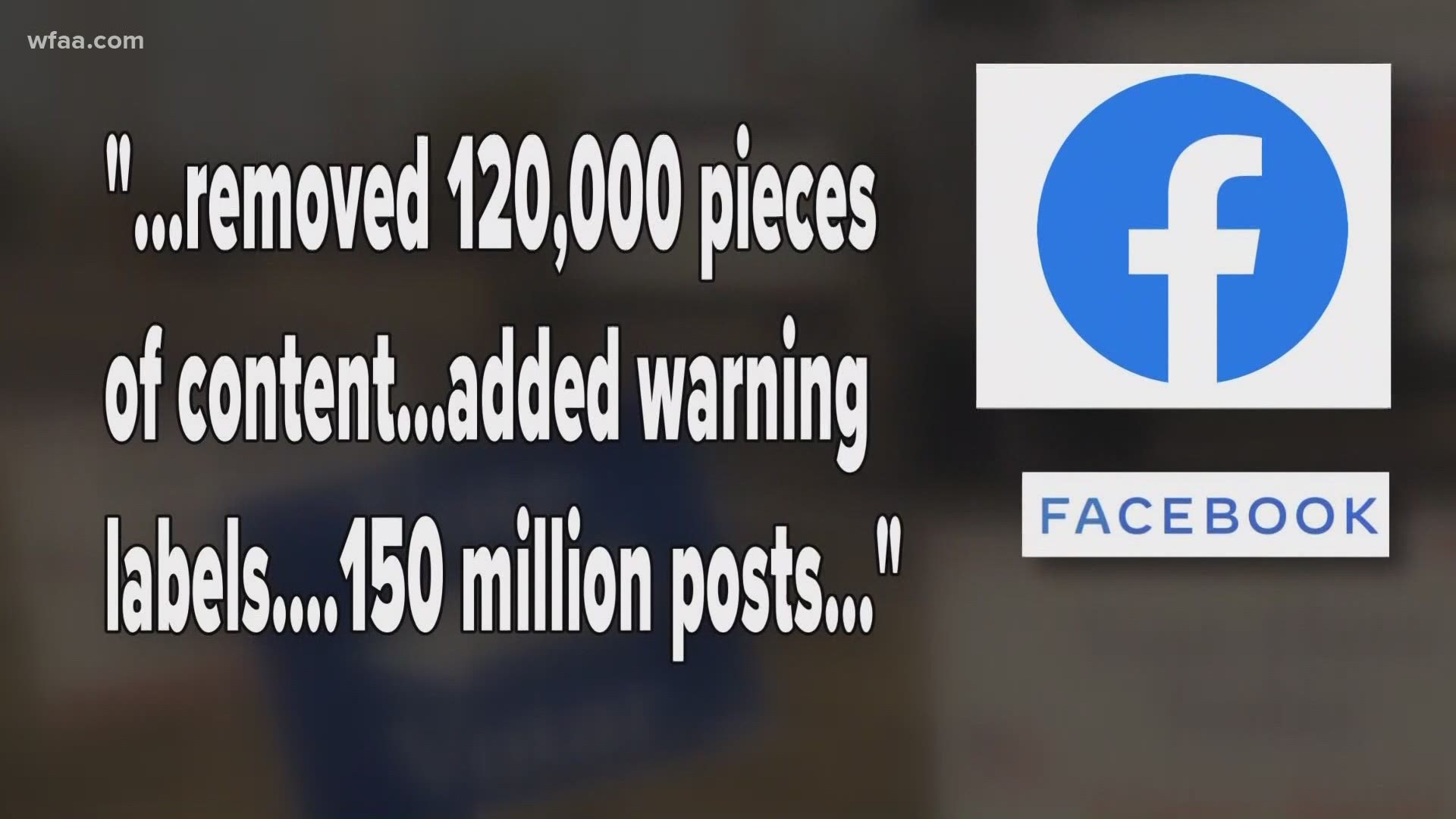DALLAS — On Oct. 21, Director of National Intelligence John Ratcliffe, a former congressman from North Texas, announced the intelligence community was tracking attempts to interfere in the 2020 presidential election.
“Iran and Russia have taken specific actions to influence public opinion related to our elections,” Ratcliffe said.
According to Ratcliffe, intelligence agents are charged with “empowering the American people to understand information, or perhaps more accurately disinformation, that they are seeing particularly on the internet.”
The election has ended but disinformation hasn’t.
Twitter and Facebook are labeling tweets and posts — not from foreign actors — but from President Donald Trump and Texas Sen. Ted Cruz as “disputed.”
The posts claim Trump has not lost the 2020 election and if he does it is only because of voter fraud.
No evidence of widespread voter fraud has been presented.
RELATED: After Facebook, Twitter crack down on misinformation, some conservatives are leaving the platforms


Facebook other social media companies are “trying,” said Jared Schroeder, an associate professor of journalism at Southern Methodist University.
“But this election was really a giant experiment for them. It was the first time in heavy rotation where they’ve used these techniques of filtering, blocking, and labeling certain content," he said.
In the six months leading up to Election Day, Facebook said it removed 120,000 pieces of content and added warning labels to more than 150 million posts from both the right and the left.
There’s no data about what the company has done since the election ended.
Schroeder said because social media companies make money off people sharing posts, they are not financially incentivized to “be better citizens.”
“We used to read the same news or watch the same news and then disagree. But now we don’t even agree on the facts,” Schroeder said.
“We used to get the facts and then we’d disagree about what should be done. Now we don’t even get that far.”

